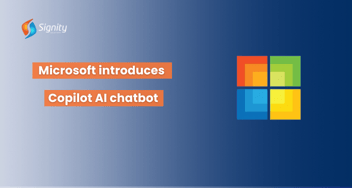Debugging and Testing Code Generated by OpenAI Models
This summary focuses on the process of identifying and resolving errors in code produced by OpenAI models, highlighting the importance of debugging and testing to ensure its functionality and reliability.
.png?width=670&height=445&name=Debugging%20and%20Testing%20Code%20Generated%20by%20OpenAI%20Models%20(1).png)
As artificial intelligence advances, developers are increasingly turning to AI-powered tools like those offered by OpenAI to automate various aspects of their work. One area where AI has made significant strides is in generating code. While these AI models can be incredibly helpful, they are not infallible, and the code they produce may still contain bugs or require testing.
In this article, we will explore the challenges of debugging and testing code generated by OpenAI models and provide strategies to ensure the reliability and security of AI-generated code.
The Promise and Challenges of AI-Generated Code
OpenAI's models, such as GPT-3, have demonstrated their ability to generate code snippets, functions, and even entire programs based on user prompts.
💡 Related Read: Role of AI in Software Development
This can significantly speed up development and reduce the burden on programmers. However, AI-generated code can introduce new challenges:
1) Ambiguity and Context Understanding
OpenAI models are pre-trained on vast amounts of text, but they may not fully understand the specific context of your code. Ambiguities or inaccuracies in the prompt can lead to code that works but is not entirely correct.
2) Quality Assurance
The generated code may not adhere to best practices or coding standards. It could be functional but inefficient, hard to maintain, or insecure.
3) Debugging
AI-generated code can contain logical errors or unintended consequences, just like code written by humans. Debugging such code can be challenging, as it lacks the human author's intent and reasoning.
Strategies for Debugging AI-Generated Code
When dealing with AI-generated code, it's crucial to have a systematic approach to debugging. Here are some strategies:

1) Thorough Testing
Before deploying AI-generated code, create a comprehensive suite of tests. These tests should cover various input scenarios and edge cases to ensure the code behaves as expected. Tools like unit testing frameworks and test automation can be invaluable.
2) Code Review
Involve human developers in reviewing the AI-generated code. They can identify logical errors, security vulnerabilities, and areas where the code can be optimized. Code review is especially important for critical applications.
3) Add Comments and Documentation
Annotate the AI-generated code with comments and documentation that explain its purpose and functionality. This can help human developers understand the code's intent and assist in debugging.
4)Validate Inputs and Outputs
Check the inputs and outputs of the AI-generated code for correctness and consistency. Ensure that the data being processed aligns with your expectations, and validate the results against known outcomes.
5) Monitor for Anomalies
Implement monitoring and error tracking for AI-generated code in production. This allows you to detect and respond to issues quickly. Tools like application performance monitoring (APM) systems can help identify performance bottlenecks and errors.
Enhancing Code Generation with AI
To mitigate the challenges associated with AI-generated code, consider the following approaches:
1) Fine-Tuning
Fine-tune the AI model on specific coding tasks or domains. This can improve the model's understanding of coding conventions and context, reducing the likelihood of generating incorrect or suboptimal code.
2) Human-AI Collaboration
Promote collaboration between human developers and AI. Developers can provide feedback and guidance to improve the code generated by AI models. This iterative process can enhance the quality of AI-generated code over time.
3) Post-Processing
After receiving AI-generated code, apply automated code refactoring tools to enhance its quality. These tools can reformat code, optimize it for performance, and ensure it adheres to coding standards.
Innovative AI Solutions Tailored to Your Needs
Our AI development solutions are built around your unique goals! Talk to our experts to discuss your ideas.
Conclusion
AI-generated code can significantly accelerate software development. However, it is not exempt from the need for testing and debugging.
Developers must approach AI-generated code with a combination of automated testing, human review, and careful validation.
By implementing systematic testing procedures, involving human expertise, and continuously refining AI models in generative AI development, developers can harness the potential of AI-generated code while ensuring the reliability and security of their software applications.
At Sigity Solutions, we specialize in unleashing the full potential of your business through cutting-edge AI development solutions. With a dedicated team of experts, we're here to navigate the complex landscape of artificial intelligence on your behalf.
Partner with us to embark on a journey of growth, efficiency, and competitiveness. Discover the power of AI with Sigity Solutions.


%201-1.webp)


.png?width=344&height=101&name=Mask%20group%20(5).png)
















